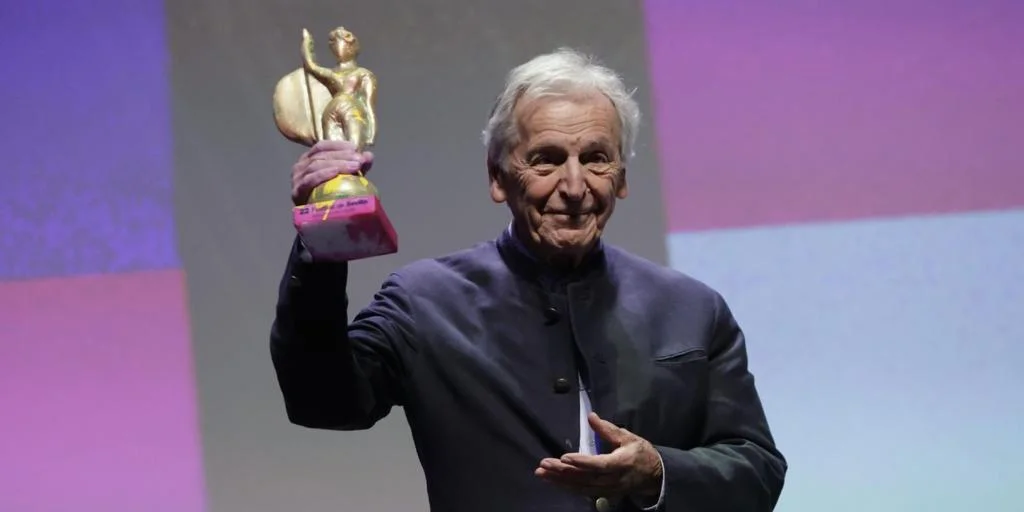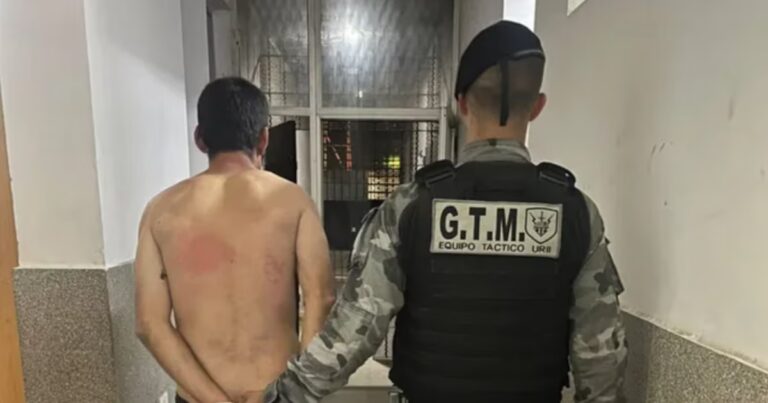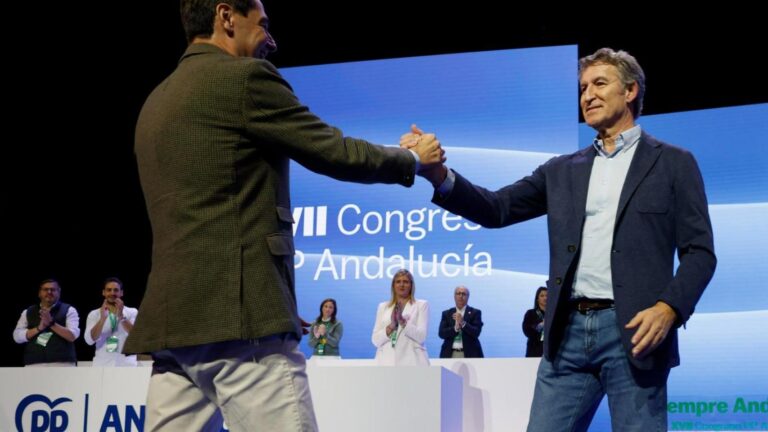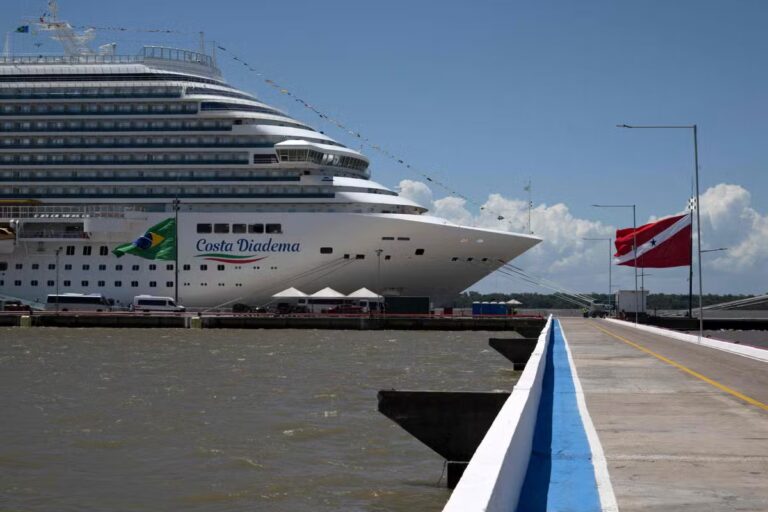
He arrived at a leisurely pace, giving a shy “good morning” and applause followed by a heartfelt “thank you.” At 92 years old, Konstantinos Gavras (better known as Kosta Gavras) continues to radiate and capture the calm clarity that only comes from those who have faced power. … The French-Greek director Giraldillo Seville European Film Festival Honorable Mentionsat in front of the audience with the serenity of someone who has nothing to prove: his filmography speaks for him.
Manuel Cristobal, the producer and moderator of the conference, recalled his childhood as a movie buff by saying, “When I started watching the movie, there was a name that was repeated in the end credits: Costa-Gavras.” And there he was, the man behind Z, State of Siege, Disappeared, Amen, Capital and The Last Sigh, ready to reflect on a life that made movies a form of consciousness. ” because of you, I’m very happy to be back in Seville -he said with a smile. I first came here in the 1960s as an assistant director. Thank you for screening so many films at this festival. He then added with a laugh that this was his only intervention in Spanish. “Because he is very poor.”
For him, festivals are more than catwalks for premieres. “Festivals are very important for cinema, allowing audiences to come together for completely different works.” Past and present films are screened here, which creates a connection between viewers and directors. Movies are a party and it’s good to enjoy life through it. His slow, warm voice never loses its political thread. When asked what theme he would like to explore in his next work, he answered without hesitation:Our society is full of problemsis transforming. Movies cannot follow current events or convey things as they really are. As a metaphor, we need distance. “This is how I’ve always tried to make films: find a way to convey reality without making it a documentary.”
That distance, the distance between art and immediacy, has been his compass since “Z.” “I agreed to shoot on the condition that I would have the final say on the script, casting, and post-production since we started shooting. I didn’t want to be guided by an American production company that always wanted a happy ending. If I couldn’t maintain that freedom, I wouldn’t have made this film,” he recalled of his least understood film, Anaka, which focused on the Palestinian conflict. As directors, we can take time to analyze people’s psychology. My film is not a prophecy, but a metaphor. In Greece, we learned that tragedy shows reality without showing it at all. “That’s my culture.”
“Greco-Latin culture reminds us that politics is part of life. But today’s politicians are pursuing their own personal interests, and that is very sad. We must strengthen the European Union. Radical policies bring countries to the worst, but each director has the freedom to express it as he sees it.”You have to tell the truth honestly without manipulating your audience. —he added—. Inside the room, the public hears the problem and feels it. It’s not about making political speeches, it’s about telling the story as you feel it. There is no absolute truth in movies. He also spoke about his relationship with the actor, who always prefers strangers: It can be difficult, but it works. I have a very creative relationship with my actors and that’s the basis.
And, in an almost fatherly tone, he compared his films to his children, saying, “Some will succeed, some will not, but you give the greatest love to those who don’t. “Anaka” passed without suffering or glory, And I’ve always wondered why. But each movie has its own life. In Europe, you learn to make films in that spirit. Since 2007, he has presided over the French Cinémathèque, a role he takes with the same passion. “It’s a personal pleasure to be able to present this film to the public and make it more popular.” We have thousands of films, files and equipment. “It’s like a permanent festival, a film festival.”
Before saying goodbye, he spoke about the future with timeless clarity. “European films have to be more developed and distributed better. Americans are doing it better and positioning their films, but we have that quality. Movies shouldn’t be a commodity. It’s personal and how you see the world.». There was a certain gratitude and a certain defiance in Costa-Gavras’s gaze, as if there was still a story to be filmed. Because for him, cinema was never a place of refuge, but always a form of resistance.



